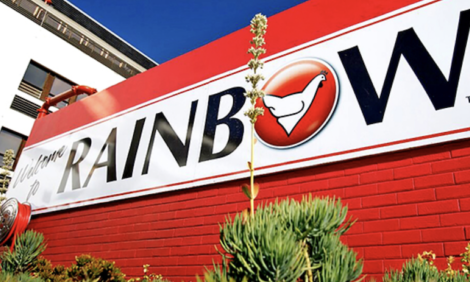



Best Bird Flu Biosecurity May Be Insufficient, US Ag Secretary Says
US - Even the best biosecurity job might not be good enough to prevent a resurgence of the highly pathogenic avian influenza virus, according to Agriculture Secretary Tom Vilsack.Mr Vilsack spoke at a conference organised to discuss the ‘lessons learned’ from the outbreaks earlier in the year, which took place in Iowa recently.
“Two hundred and thirty-two enterprises and operations have been hit by avian influenza since early spring with nearly 50 million birds depopulated.
"This has caused USDA to reach out to almost 3,000 additional workers for APHIS. We have expended, or likely will expend, in excess of $700 million dollars in the form of indemnification payments to producers, as well as the reasonable cost of disinfection and clean-up.
"We expect, and anticipate, that should avian influenza re-emerge in the fall, that number may obviously grow,” said Mr Vilsack at the conference, which was organised by various US poultry associations.
As part of his speech, Mr Vilsack discussed preparing for the autumn (fall) wild bird migration season. He focused on collaborating with the poultry industry and state and local governments, as well as on the need for the best biosecurity possible, incident command structures, the vaccination and indemnification process, and better communications among all parties.
Secretary Vilsack remarked: “Obviously, the best biosecurity job may not be good enough. There may well be a reemergence; and if there is, we will be dealing again with the issue of depopulation.”
Iowa Governor Terry Branstad spoke at the conference on the impact of avian influenza on the industry.
He observed that the spring avian influenza outbreak was the worst animal disease outbreak in modern US agricultural history, with the largest economic impact and the largest number of animals affected.
Mr Branstad remarked that Iowa was one of the states hit hardest by the outbreak, commenting: “according to USDA’s latest egg production report, Iowa egg production in June was down 44 percent from one year ago.”
In his presentation titled, "H5N2 Outbreak: Where Are We… Where We Are Going", Dr John Clifford, chief veterinary officer for USDA APHIS, observed that avian influenza is a world-wide issue.
He stressed the need to address issues in other parts of the world as they arise or be faced with continuing to have these types of introductions, or risk of introductions, in the US and around the world.
Dr Clifford also shared lessons learned regarding disposal and cleaning and disinfection methods as a result of the spring avian influenza outbreak, as well as discussing the results of the completed USDA epidemiology avian influenza report.
Rick Huisinga, CEO of Life-Science Innovations for Willmar Poultry Company, and J.T. Dean, COO for Center Fresh Group, were two of four participants in a “Producer Panel: Lessons Learned” discussion.
Mr Huisinga shared what Willmar Poultry learned as a result of the avian influenza outbreak, including older birds being more susceptible and delaying depopulation as being disastrous.
Mr Huisinga also discussed prevention methods that included not growing commercial toms near breeder farms, bio-filtering incoming air on their high value birds and pre-moving PCR water testing.
Mr Dean observed that the Center Fresh Group of companies was able to keep the virus contained to eight of their sites. However, this still resulted in a loss of approximately 9 million birds.
Mr Dean remarked that the biggest takeaway that he could provide would be to plan, commenting that “prior planning prevents poor performance.”
He discussed the need to have a robust biosecurity program, disposal plan, adequate supplies, defined leadership and chain of command, state/federal contact information, and a plan for continuity of clean operations.
The conference agenda was developed through the collaboration of USPOULTRY, National Chicken Council, National Turkey Federation, United Egg Producers, USA Poultry & Egg Export Council, and the US Department of Agriculture.
Other topics covered included:
- HPAI Epidemiological Investigations: Biosecurity’s Role in Disease Prevention;
- Industry Biosecurity Challenges Panel;
- Accountability for Biosecurity;
- Indemnity Process and Procedures;
- Communication: Effective Customer Communications, A State Agency’s Perspective, and Federal Agency Stakeholder Communication;
- Research Update Panel: Vaccination, Epidemiology of the Virus, and Disease Transmission;
- Biosecurity for Feed;
- After the Outbreak: Disposal Methods and Depopulation, Cleaning and Disinfecting, and Re-Population;
- Is Rendering a Viable Option for Future Outbreaks?;
- Gaps and Opportunities – Open Discussion;
- Action Items for the Fall Season;
- and Impact on Trade: Implication of Response Activities on Trade, Interstate Poultry Movement, and International.








